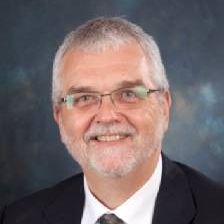What Is Happiness, Anyway?
Happiness is ultimately a choice: so choose to have good relationships, find beauty in nature and take care of yourself
Gwen is a bright 60-something year old woman working as a nurse educator in a southern urban hospital. In a psychotherapy session exploring concerns regarding experiences with chronic, debilitating anxiety, she said, "I know I should be happy, but I don't even know what that is."
She continued, "The pandemic made things worse for me. As good as it sounds, I've learned that this whole patriotic idea of 'life, liberty, and the pursuit of happiness' is aspirational, not a promise. I think my natural state of being is not necessarily happy, so I'm not sure what to expect."

'I'm Not Happy'
Gwen, like many, is experiencing how happiness, defined by an internal sense of personal satisfaction, seems to have dramatically changed in the last few years. Cynicism, irritability and exhaustion rise with increasingly demanding urgencies of daily living embodying different energy than was experienced in the pre-pandemic years.
"I know I should be happy, but I don't even know what that is."
Another therapy client, George, voiced a similar complaint as Gwen's. "I want to be happy," he said. "I'm not sure what the takeaway is, though. I am struggling more than I think that I should."
Social science provides thoughtful and practical definitions to how happiness is manifest. Psychologist Laurie Santos teaches Yale's single most popular course, On the Science of Happiness.
She found that what people think makes and keeps them happy (money, status, good grades) is in fact, erroneous. Those things that ensure good physical health (sleep, exercise and nutrition), membership in community, expressions of gratitude, thinking in mindful ways and finding meaning in everyday life are more accurate markers indicative of the internal sense of happiness.
'Why Aren't I Naturally Happy?'
Neurological psychologists remind us that while our brains are good at many things, happiness is not necessarily one of them. The process of natural selection and sustenance is more oriented to survival, reproduction and full utilization of resources. So, in 2023 as the world is more fragmented, polarized and we live with a loss of the common good, the psychological "lay of the land" for what makes us happy appears to be changed.
George, who is a recent widower, continued saying, "I feel like a stranger in a strange land. I'm reading a map without understanding where I'm going."
Understanding the Map
In the early twentieth century, the psychoanalyst Carl Jung wrote extensively on five key elements of happiness. Brought forward a hundred years, now as is taught by Santos in the Yale course, Jung's factors continue to provide a clear and convincing set of guidelines for defining happiness.
5 Elements of Happiness
- Good physical health. For 55+ers, good physical health is defined by staying in motion. While it may be aspirational to run a 5k race, walking 20 minutes every day is good enough exercise.
- Close personal and intimate relationships. Finding and sustaining loving, companionable and collegial communities enhances the sense of warmth that is a marker of the energy of happiness.
- Focused intent on the beauty and art in nature. Walk outside. Place cut flowers on the dining room table. Listen closely to the sound of the rain. Hug a tree.
- Reasonable standards of living and satisfactory work. As we age, the metrics for productive activities of daily living may be evaluated by what statisticians call “goodness of fit.” Ask questions that examine how elegantly the day unfolds. By Jung’s definition, the more grace and simplicity is found in the course of the day, the more happiness is present.
- A philosophic or religious point of view. An organized belief system that allows meaning for coping successfully with the alterations of daily life is a defining factor of happiness. This point of view is characterized through the definition of how an individual understands the nature of life.
It Is More Than Emotions
Both George and Gwen, like many moving through today's world, said, "I don't feel happy." It is apparent that the process of being happy is defined by more than emotionality. Thought, value and belief, and behavior are necessary considerations for living happily.
As he moved through the grief of the loss of his wife, George said, "I learned that I could feel more than one emotion at any point in time. I've finally redefined being happy simply by the word 'happening' — that, if I am moving in a congruent way through the day, I'm OK, even if I don't feel especially joyful. I now believe and think that happiness is tied more to effectiveness than it is to elation."
"I now believe and think that happiness is tied more to effectiveness than it is to elation."
The Takeaway
The takeaway is that we think we know what we should do to be happy, even though our brain naturally leads us to faulty impulses and intuitions. Happiness-building helps. In a world where we are prone to feel anxious, down and unable to control those factors that influence happiness, understanding individual agency and intentionally helps the movement toward satisfaction.
Nearly all social science experts emphasize the same cocktail of ingredients that define happiness: A sense of control and autonomy over one's life, being guided by meaning and purpose, and connecting with others.
While our feelings are innate, the bulk of happiness is defined by choice. The more an individual notices and engages those behaviors that contribute to happiness, the more it grows.


